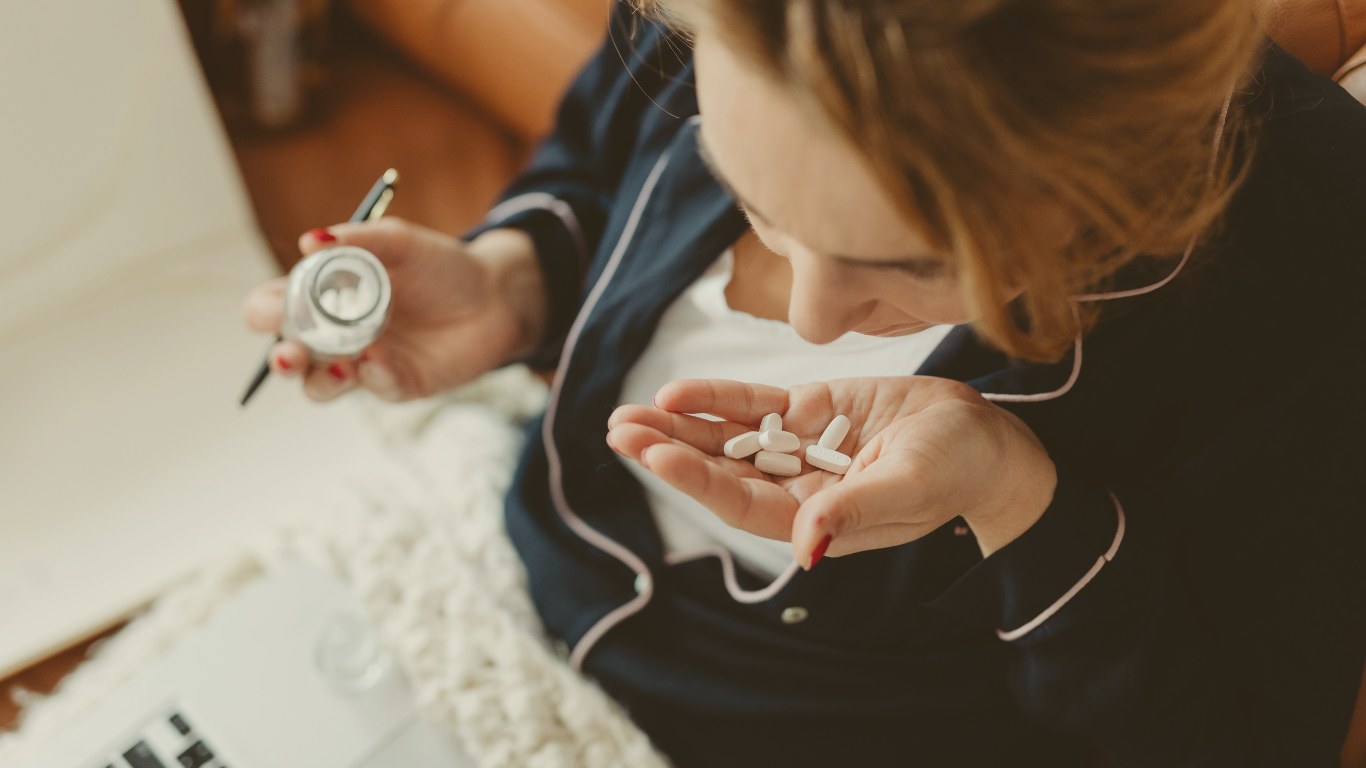Tramadol Addiction Treatment & Rehab in Atlanta, GA

Tramadol addiction affects many lives across Georgia, with high rates of opioid-related health issues reported in the Atlanta metro area. The medication’s dual action as both an opioid and noradrenergic drug makes it particularly challenging to overcome without professional help.
Options for tramadol addiction treatment in Atlanta, GA, include medication-assisted therapy, counseling, and comprehensive recovery programs that address both the physical and psychological aspects of dependence. These services are available through MARR Treatment Centers.
Studies have shown that tramadol can cause significant neurological effects, and many users often struggle with multiple substance use issues. Professional treatment becomes essential for safe recovery, as withdrawal symptoms can be severe and may require medical supervision.
How Tramadol Addiction Develops
Tramadol addiction develops through changes in brain chemistry that create physical and psychological dependence. The risk of dependence increases significantly when people take higher doses or use tramadol with other substances.
Risks and Causes of Opioid Addiction
Tramadol affects the brain’s reward system by binding to opioid receptors and increasing dopamine levels. Regular use can lead to tolerance, requiring higher doses to achieve the same effects.
Risk factors that increase the chances of developing addiction include:
- Chronic pain conditions
- History of substance use disorders
- Mental health disorders
- Genetic predisposition
- Early exposure to drug use
- Trauma or stress
Identifying Substance Use Disorder
Common signs of tramadol drug abuse include:
Physical symptoms:
- Drowsiness and confusion
- Nausea or vomiting
- Constipation
- Sleep problems
Behavioral changes:
- Taking larger doses than prescribed
- Doctor shopping for multiple prescriptions
- Withdrawal from social activities
- Continued use despite negative consequences
Studies show many people who misuse tramadol also use other substances, increasing health risks.
The Impact of Addiction on Mental Health
Tramadol addiction often leads to significant mental health challenges. Many people experience anxiety, depression, and mood swings during active addiction and withdrawal.
Brain chemistry changes can worsen existing mental health conditions or trigger new ones. People may feel trapped in cycles of use and withdrawal.
Recovery requires addressing both drug addiction and mental health needs together. Our professional tramadol addiction treatment in Atlanta, GA helps manage withdrawal symptoms while providing mental health support.
Common mental health effects include:
- Increased anxiety and panic attacks
- Depression symptoms
- Memory problems
- Difficulty concentrating
- Changes in sleep patterns
Our Approach to Tramadol Addiction Treatment
We use evidence-based practices and holistic interventions to provide clients with a comprehensive treatment experience. Our drug rehab programs are designed to help you manage triggers, improve mental and physical health, and rebuild relationships with loved ones.
Family involvement and peer support are integral to the recovery process, fostering connection and reducing feelings of isolation.
Clients in our tramadol addiction treatment program in Atlanta participate in a combination of therapeutic services, including:
- Brain Spotting
- Cognitive Behavioral Therapy (CBT)
- Eye Movement Desensitization and Reprocessing (EMDR)
- Dialectical Behavioral Therapy (DBT)
- Holistic Therapy
- Trauma Therapy
- Individual therapy
Support Services for Long-Term Recovery
Recovery from tramadol addiction requires a comprehensive system of support services that extend beyond initial treatment. These services offer effective treatment to help prevent relapse and build a strong foundation for lasting sobriety.
Family Therapy and Support Networks
Family therapy sessions help repair relationships damaged by addiction in a supportive environment. Weekly family counseling sessions address communication problems, set healthy boundaries, and rebuild trust.
Support groups for families provide education about addiction and connect loved ones with others facing similar challenges.
Family members learn how to:
- Avoid enabling behaviors
- Practice self-care
- Support recovery without sacrificing their well-being
- Understand the recovery process
Regular family participation improves treatment outcomes and strengthens the entire support system.
Life Skills and Relapse Prevention
Developing practical life skills is essential for maintaining sobriety. Patients learn stress management, healthy coping mechanisms, and emotional regulation through individual and group therapy.
Key relapse prevention skills include:
- Identifying and avoiding triggers
- Building healthy routines
- Managing cravings
- Problem-solving without substances
- Creating a crisis plan
Rehab programs teach job skills, financial management, and other tools needed for independent living.
Aftercare and Continuous Recovery Monitoring
A structured aftercare plan provides ongoing support after completing initial treatment. Regular check-ins with counselors help track progress and address emerging challenges.
Long-term peer support through recovery meetings and alumni groups maintains accountability and connection to the recovery community.
Recovery monitoring includes:
- Random drug testing
- Monthly counseling sessions
- Progress tracking
- Medication management
- Support group attendance
Sober living homes offer a transitional environment with built-in support and structure while patients build independence.

Our Treatment Programs
MARR Treatment Centers offer varying levels of programs to meet the diverse needs of our clients. Our programs include sober living and outpatient options tailored to each client’s unique challenges.
We prioritize individualized care to foster lasting recovery and support our clients throughout their healing journey.
Outpatient Program (OP)
Outpatient rehab provides individuals with substantial support while maintaining a flexible schedule. It typically serves as a transition from more intensive treatment, involving attending various therapies and services multiple days a week.
We assist individuals in developing coping strategies, enhancing social skills, understanding the root causes of their challenges, and fostering a meaningful recovery.
Our outpatient treatment program is tailored for those dealing with drug and alcohol addiction, as well as co-occurring mental health disorders, which require a dual diagnosis, with a commitment to helping clients achieve their full potential.
Intensive Outpatient Program (IOP)
Our IOP provides a flexible yet structured approach to treatment for addiction and mental health, offering comprehensive care and support. Our IOP surpasses traditional outpatient services while allowing clients to maintain their home life or reside in a sober living environment.
This level of care is often a transitional step following residential rehab or a Partial Hospitalization Program (PHP). Individuals exploring IOP options in Georgia should recognize our commitment to promoting our client’s well-being and success.
Our compassionate team is devoted to supporting each person’s journey towards a safe, sober, and fulfilling future at every stage of their treatment.
The program is ideal for individuals who no longer require the 24/7 supervision of inpatient care or a PHP but still need substantial support and a structured schedule.
IOP is perfect for those transitioning from a higher level of care as part of their overall treatment plan. Clients in our IOP can continue working, attending school, or spending time with loved ones while undergoing treatment.
Ideal candidates should have a safe, sober living environment—at home or in sober living housing—and a strong support system. A firm foundation for recovery is also essential.
Partial Hospitalization Program (PHP)
Our PHP provides a high level of structure and support while allowing clients the option to return home or stay in a sober living facility each evening.
Throughout the day, clients participate in various therapeutic services tailored to their challenges related to addiction, mental health, or co-occurring disorders.
Our PHP in Atlanta features treatment sessions that last about four hours daily, five days a week. This flexible schedule enables individuals to access intensive support while balancing personal responsibilities such as work, school, or family commitments.
The structured therapy hours promote consistency and create a focused environment conducive to long-term recovery.
PHP is an excellent choice for those who do not need the 24/7 supervision found in residential programs but require more comprehensive care than outpatient programs provide. This program is particularly advantageous for individuals with a stable support network and housing, as well as those who have not yet experienced addiction treatment.
It’s ideal for anyone needing a more structured approach than an Intensive Outpatient Program (IOP) or traditional outpatient therapy.
Frequently Asked Questions About Tramadol Addiction & Treatment
People seeking treatment for tramadol use need accurate information about symptoms, substance abuse treatment options, and local support resources. Common concerns include withdrawal symptoms, effective therapies, and reliable recovery programs in the Atlanta area.
What are the signs of tramadol dependence?
Common signs of tramadol dependence include taking higher doses than prescribed and experiencing intense cravings.
Physical symptoms include sweating, muscle aches, and sleep problems when not taking the medication.
Behavioral changes often involve doctor shopping, borrowing medications from others, or buying tramadol illegally.
What treatment services are effective for tramadol addiction?
Cognitive Behavioral Therapy (CBT) helps identify triggers and develop healthy coping strategies.
Group therapy provides peer support and shared experiences in a structured environment.
Medication-assisted treatment may help manage withdrawal symptoms and reduce cravings during recovery.
Can you overcome tramadol addiction on your own?
Attempting to quit tramadol without medical supervision can be dangerous and potentially life-threatening. Professional treatment programs provide necessary medical monitoring and support for safe recovery.
What are the risks of tramadol withdrawal?
Withdrawal symptoms can be severe and include anxiety, agitation, and intense physical discomfort. More serious complications may include seizures, severe depression, and cardiovascular problems.
Medical supervision during withdrawal ensures safety and comfort through the detox process.
How long does it take to detox from tramadol?
Acute withdrawal symptoms typically begin 12-24 hours after the last dose and peak within 3 days. Physical symptoms usually last 5-7 days, while psychological effects may continue for several weeks.
What support groups are available for tramadol addiction recovery in Atlanta?
Metro Atlanta treatment centers offer specialized support groups focused on opioid addiction recovery. Narcotics Anonymous holds daily meetings throughout Atlanta and surrounding communities. Local hospitals and treatment facilities provide aftercare support programs and alumni groups.
Our Tramadol Rehab Center in Atlanta, GA Welcomes You
If you or a loved one is struggling with tramadol addiction in Atlanta, GA, don’t wait another day to seek help. MARR Addiction Treatment Center is here to help you face the unique challenges of tramadol dependence.
Our expert team is dedicated to helping you achieve lasting recovery through individualized treatment plans, rigorous monitoring, and vital peer support systems.
Take the first step towards a healthier, drug-free life by contacting us today at 678-884-4080 to learn how we can support you on your journey to recovery and wellness.
